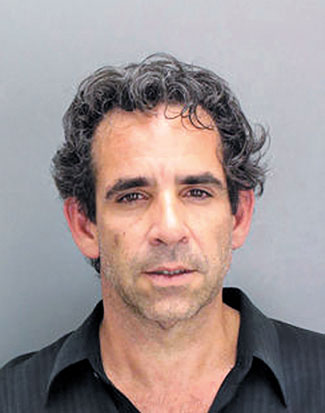Shady Deals Mar MLB Drug Case

Baseball is pinning its prosecution hopes on the guy in this Miami-Dade Police Department booking photo | AP photo
Major League Baseball finds itself in a precarious situation. Much like government agencies forced to work with less than honorable characters to achieve advantageous outcomes (think about that for a second), Major League Baseball is attempting to clean up its business by working with a notorious figure.
Baseball hopes Tony Bosch is the prostitute with good eyesight – a questionable but credible witness for the prosecution who will stay clothed long enough to advance the cause for justice.
In January, the Miami New Times obtained documents that say Biogenesis of America supplied MLB players with performance-enhancing drugs, including human growth hormone, testosterone and steroids. The report cited interviews with six customers and two former employees who verified the information.
The Drug Enforcement Agency investigated Bosch, who runs the anti-aging company, and his father, Dr. Pedro Publio Bosch, in 2009 for allegedly providing then Los Angeles Dodgers outfielder Manny Ramirez with human chorionic gonadotropin, a human growth hormone. Neither was charged, but the son has remained associated with questionable medical treatments.
According to ESPN’s Outside the Lines, Bosch, who has described himself as a biochemist, filled out incorporation documents in 2009 to create an online pharmaceutical business that would sell primarily HGH and testosterone. ESPN reported the venture was killed after legal concerns were raised by Bosch’s lawyers.
Bosch became scarce after publication of the New Times article and denied any involvement with PEDs and Major League Baseball.
Suddenly, things have changed.
The defiant health-product supplier is now the league’s star witness. In exchange for his help, baseball has agreed to protect Bosch from any future legal action that may be taken as a result of his assistance. The question is, will Bosch be able to present enough evidence to counter the inevitable attacks on his credibility?
MLB will try to paint Bosch as a fallen but believable witness.
The Players Association and the individual legal representatives will attempt just the opposite.
Bosch will be described as a scam artist who claimed to be a doctor and a medical researcher, who recanted his earlier claims of innocence and as someone who tried to extort money from banged-up Yankee veteran Alex Rodriguez. Brian McNamee’s shady past helped Roger Clemens’ defense, and the players are hoping Bosch’s history will do the same. Baseball itself isn’t beyond suspicion after The New York Times reported the league bought documents from an investor who tried to sell Biogenesis’ medical records to MLB officials and players.
As unsettling as these associations may be, the lack of credibility is not likely to be the biggest problem to arise from this case. Player suspensions minus a failed drug test could destroy the labor peace both sides have enjoyed since the end of the 1994-95 players strike.
Both labor and management have enjoyed the benefits of a system that sus pends players for a failed drug test – allowing the league to look tough on cheaters – but still provides for the free market trade of goods and services that enrich both the buyer and seller.
But if the league digs back into its past and starts banning players because of associations and not because of a proven rules violation, things could get ugly when the collective bargaining agreement ends in 2016.





